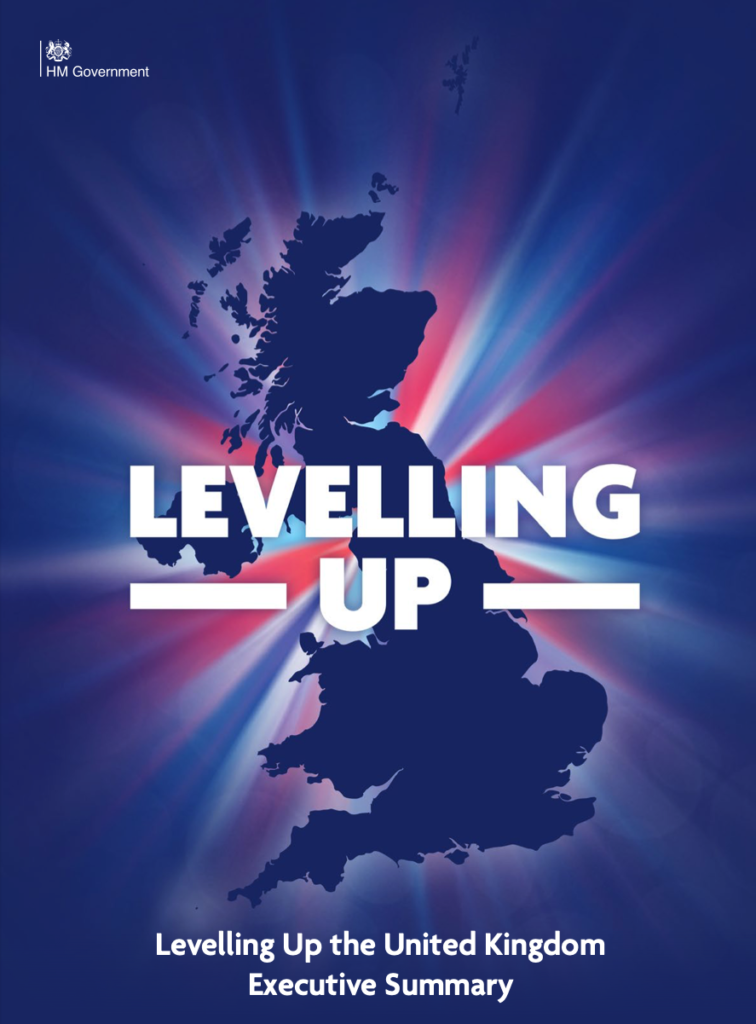
A bull market ends when the last bear has been beaten into submission. It felt that way last autumn. In 2020 I was astonished when, after an initial fall in response to the emerging covid crisis, financial markets bounced back and then became positively buoyant. How was this a rational response to the the catastrophe enveloping the world? But the bull market just went on.
Then last autumn I started to read articles suggesting that investors must fundamentally re-evaluate asset prices upwards. The argument was based on the idea that interest rates were fundamentally lower than historically, so we shouldn’t be using historical comparisons of yield and other such ratios, which were pointing to over-valuation. This felt a lot like the last bear caving in. There was certainly something crazy about financial markets at the time – shown not least by the craze for crypto-currencies. All this was reminiscent of the insane world of the tech bubble at the end of the 1990s. Loss is the new profit, and so on.
There is something very odd about the way the interest rate argument is used to justify high valuations. The logic is superficially soound. Anybody with a training in finance is familiar with valuation models based on a discount rate – which is the rate you should receive by investing your money in a zero-risk alternative. The lower the discount rate, the higher the valuation. But lower interest rates also suggest low rates of return on investing your money. So how is that investors get richer when returns fall? Common sense would suggest that a world in which the risk-free rate of return on investment is near zero (or negative after inflation) is one that is going to hell in a handcart. Something, somewhere is not making sense. In fact we should be expecting profits and rental incomes to stagnate or fall, and this should undermine valuations.
But asset prices are not set by the use of logically rigorous financial models. They are set by the laws of supply and demand. The modern economy is generating a lot of funds for investment, but there is an unwillingness for investors to use this for good old-fashioned projects that might generate a cash surplus at a future date. That leaves too much money sloshing around in bank accounts or low risk assets such as government bonds. That keeps low-risk returns down, and it also means that banks are willing to loan money at low rates of return. This generates demand for assets that might generate a return at expense of risk (though still not those boring real-economy projects, apparently). This does not necessarily lead to an asset-price bubble: investors could just be more patient. But it clearly has.
Central banks can do something to restore order by pushing commercial banks to raise interest rates, in their role as their regulator and the banker’s banker. For the last three decades they have chosen not to, using various arguments either to deny that there is a bubble, or to say that it isn’t their job to act against it – instead focusing on consumer price inflation and unemployment. It is difficult theoretical terrain, but it is hard not to see politics and the vested interests of the finance industry behind this.
What bursts bubbles? It is when the funds dry up and more people want to sell riskier assets than buy them, while demand often exceeds supply of less risky assets, causing a scramble. This is usually the result of chickens coming home to roost – high risk investments carry a high risk, after all. The great financial crisis (GFC) of 2007-09 was started by defaults in the US property market. It doesn’t help that in the modern world “funds” is a fluid thing and not the movement of fixed quantities of money as we might intuitively expect. This gives scope for chain reactions that can be global in reach. In the GFC this was truly spectacular and served to expand a minor crisis in US sub-prime real estate into a global banking catastrophe. That was the result of uncontrolled financial engineering across developed economies in the previous decade. There was something of a Ponzi scheme collapsing – but to this day supporters of Britain’s Labour government, which was an active supporter of the country’s role in building the Ponzi scheme (aka world-class financial innovation), insist it was nothing to do with them because it was all about US real estate.
The asset price bubble is clearly bursting now. The proximate cause is inflation, causde by widespread disruption to the supply side of the economy – which I discussed last week. Amongst other effects this is causing central banks to radically change course. Interest rates are starting to go up – though not by very much so far, given the levels of inflation. Perhaps more immediately threatening to markets is that Quantitive Easing (the central banks buying up bonds to keep long term interest rates low) is now moving into reverse. This upsets the balance of supply and demand in asset markets. Meanwhile the convergence of disasters affecting economic supply, from the war in Ukraine to covid in China, are clearly destined to make the world poorer, and this affects how people value assets.
The burning question is just how big will this financial crisis get, and what will its consequences be? I will focus on the UK – as we may find that things unfold quite differently in different countries. On the one hand the financial system is not as dangerously wound up on itself as it was during the GFC, limiting the chain reaction. The world banking system does not look in imminent danger. On the other hand, the outbreak of inflation knocks away one of the props upon which the financial system has been based for 30 years or so – the prospect of ever-lower nominal interest rates. This suggests that the crisis will be slower but longer-lasting. The most sensitive part of this is house prices. In the GFC prices dived rapidly as the financial system froze over and it became very hard to arrange mortgage finance. But conditions quickly eased, and prices bounded back. This time it looks as if nominal interest rates will rise steadily and may well stay up. This will impact new mortgages rather than existing ones, as most mortgages these days are fixed rate. So prices are likely to decline more slowly, but the effect could last longer. It is hard to tell about the wider economy. It depends n the state of business finances. If a harsher financial environment causes widespread bankruptcies, we could experience a significant recession. Otherwise things will be much slower moving and the economy will experience a long period of doldrums.
What will the political impact of these be? The accepted story of politics since the GFC is that the crisis provoked a backlash against metropolitan elites, which were seen as having caused the crisis and escaped its worst impact. It was the political right which managed to exploit this the best, with the rise of populist policies. In Britain this focused on Brexit. The Conservatives were the ultimate beneficiaries. Politically the old liberal elites have taken a pounding, though, and they are not such an obvious target for a backlash. An obvious culprit for the trouble is Brexit but the main opposition parties, Labour and the Lib Dems, are reluctant to invoke the B-word. Their sense is that Britons (especially the English) are reluctant to re-enter the polarisation and political warfare set off by the referendum in 2016. They were accused of trying to overturn a democratically fair decision, and many politicians in these parties have taken this message on board. Anyway, both parties want to win back voters who supported Brexit, as well as those who do not want to reopen the wounds.
But as yet I do not see a clear alternative line of attack. What should the government be doing to face the crisis that it is not? It is not obvious to the public whether the answer is more or less austerity. Swing voters tend not to been drawing non-pension benefits, which look inadequate. As yet there does not seem to be a tide of anger about the failure of the state pension to keep up with inflation. Immigration has failed to present as a burning concern to most. The opposition has to content itself with complaining that the government is incompetent and out of touch. But the public has to be convinced that they would do a better job.
But the point is that public anger is likely to gather pace, and it will attach itself to something – but we don’t know what yet. Where will angry, property-owning former Tory supporters go? Labour has not been positioning themselves for these voters since the departure of Tony Blair in 2007; it may forgotten how to. This could yet be a propitious moment for Lib Dems, who are increasingly focusing on this demographic. They have been courting these voters in by elections and local elections, with some spectacular successes. It is early days. No clear national narrative is emerging from the party. But it is too early for that. They need to understand how resentment at failing house prices and a stagnant economy translates into specific demands. But for the first time in a long time, the period the party spent in coalition with the Conservatives in 2010-15 might be an asset. From the vantage point of 2022, with some selective memory, many Tory voters might remember this as a golden age.


